PROMO!
First order? Get 10% OFF with this code: 1storder
Our Product Categories
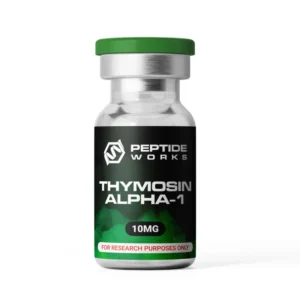
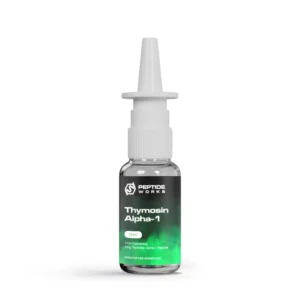
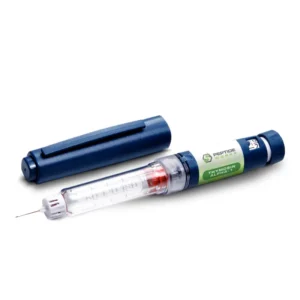
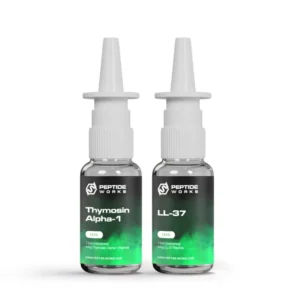
Thymosin Alpha-1, also known as Ta1, is a 28-amino-acid peptide that is derived from the thymus gland. It plays a vital role in regulating and enhancing the immune system’s function. The peptide is recognized for its immunomodulatory effects, as it enhances T-cell activity, improves antigen presentation, and regulates cytokine production, thereby strengthening the body’s defenses against infections, viruses, and cancer.
Clinically, it has shown promise in treating conditions like hepatitis B and C, HIV, sepsis, tuberculosis, and various cancers, including liver, breast, and lung cancer. FDA-approved and well-tolerated with minimal side effects, Ta1 is used in immunotherapy, either alone or in combination, and continues to be explored for the treatment of respiratory and chronic inflammatory diseases.
Peptide Sequence (IUPAC Condensed): Ac-Ser-Asp-Ala-Ala-Val-Asp-Thr-Ser-Ser-Glu-Ile-Thr-Thr-Lys-Asp-Leu-Lys-Glu-Lys-Lys-Glu-Val-Val-Glu-Glu-Ala-Glu-Asn-OH
Molecular Formula: C129H215N33O55
Molecular Weight: 3108.3 g/mol
Synonyms: Tα1, Thymalfasin
View the Thymosin Alpha-1 Certificate Of Analysis (COA)
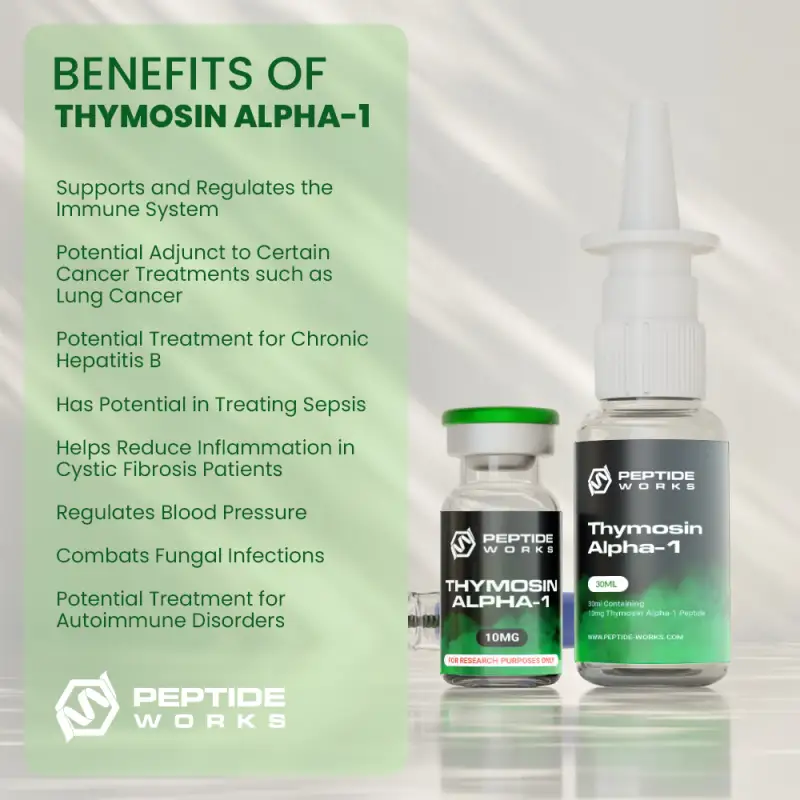
Thymosin Alpha-1 (Tα1) boosts your immune system’s ability to fight off illness. It does this by focusing on T-cells, which are key for defending your body. Tα1 helps these T-cells, especially helper T-cells (Th1), mature and work properly to fight infections and cancer. It also makes natural killer (NK) cells more active, improving their ability to find and destroy infected or cancerous cells.
Tα1 also regulates cytokine production, which helps create a balanced immune response and reduce excessive inflammation. By improving immune surveillance and lessening immune suppression from chronic diseases or infections, it helps restore immune function in people with compromised immune systems.
Immune System Modulation: Research suggests that Thymosin Alpha 1 (Tα1) is a thymic peptide with powerful immune-modulating effects. Studies have shown that it activates dendritic cells through Toll-like receptors, enhancing their ability to present antigens and produce immune-related cytokines like TNFα, IFNγ, and IL-2 [1].
Research has also indicated that Tα1 improves T-cell responses, particularly in memory subsets, by increasing CD40/CD40-L expression and reducing immune suppression markers like PDL-1 [2].
Clinical studies involving over 11,000 subjects demonstrate Tα1’s effectiveness in treating immune suppression related to infections, cancer, autoimmune diseases, and COVID-19. Safe and well-tolerated, Tα1 shows immense potential as a therapeutic tool for strengthening immune function in immunocompromised patients [3].
Potential in viral infections: Research suggests that Thymosin Alpha 1 shows significant potential in treating viral infections by enhancing immune responses and reducing inflammation. In hepatitis B and C, Tα1 improves viral clearance, particularly when combined with interferon-alpha-2b, achieving higher rates of normalized liver enzyme levels and viral RNA clearance [4].
In COVID-19, Tα1 therapy has been linked to reduced mortality in moderate-to-severe cases by modulating dendritic cells and T-cells, improving immune functionality while lowering proinflammatory cytokines [5].
Tα1 also supports T-cell memory and polyfunctionality, making it a promising adjuvant for both acute viral infections and vaccination, particularly in immunocompromised or elderly individuals [6].
Adjunct in Oncology and Immuno-Oncology: Research indicates that Thymosin Alpha 1 plays a vital role as an adjunct in oncology and immuno-oncology by enhancing immune responses and improving treatment outcomes. It supports T-cell maturation and differentiation, helping to restore immune function in cancer patients [7].
Studies show Tα1 improves overall survival in resectable non-small cell lung cancer (NSCLC) and liver cancer, while reducing chemoradiation-induced lymphopenia and pneumonia in advanced NSCLC. Tα1 also enhances the efficacy of immune checkpoint inhibitors (ICIs) by converting “cold tumors” into “hot tumors” and mitigating colitis caused by ICIs. With its strong safety profile, Tα1 holds promise in combination cancer therapies [8].
Immunosuppression, sepsis, and critical illness: Studies suggest that Thymosin Alpha 1 (Tα1) shows promise in treating immunosuppression and improving outcomes in sepsis and critical illness. Research has indicated that Tα1 can improve immune function by increasing important markers, such as HLA-DR and T-cells (CD3, CD4), and reduce sepsis-related deaths by approximately 41% [9].
Research shows that Tα1 helps balance inflammatory and anti-inflammatory cytokines like TNF-α, IL-6, and IL-10. While Tα1 has been found to lower 28-day mortality rates, its effectiveness may vary for patients with diabetes or cancer. These findings suggest Tα1 could be a potential treatment for sepsis, but more studies are needed to confirm its benefits [10].
Safety profile: Thymosin Alpha 1 has demonstrated a strong safety profile across over 11,000 patients in more than 30 clinical trials. Studies show Tα1 is well-tolerated, with minimal side effects, even in treatments for COVID-19, autoimmune diseases, and cancer. Despite FDA restrictions in 2023, evidence supports its safety and effectiveness as an immune modulator. Researchers advocate for its continued availability, highlighting its potential to treat various conditions safely and effectively [3].
Buy Thymosin Alpha-1 Pre-Mixed Peptide from Peptide Works. Each pen kit includes a 10mg pre-mixed cartridge, complete with a cartridge pen, needle tips, and carry case for ease and precision.
[1] R King and C Tuthill (2016) Immune Modulation with Thymosin Alpha 1 Treatment – Vitamins and Hormones, 2016, Volume 102, Pages 151-78.
[2] M.S. Espinar-Buitrago, E. Vazquez-Alejo, E. Magro-Lopez, et al (2023) Immune modulation via dendritic cells by the effect of Thymosin-alpha-1 on immune synapse in HCMV infection – International Immunopharmacology, Volume 125, Part A, December 2023, 111103.
[3] Elliot Dinetz and Edwin Lee (2024) Comprehensive Review of the Safety and Efficacy of Thymosin Alpha 1 in Human Clinical Trials – Alternative Therapies in Health & Medicine, 2024 Jan, Volume 30 (Issue 1), Pages 6-12.
[4] C D Ancell, J Phipps, and L Young (2001) Thymosin alpha-1 – American Journal of Health System Pharmacy, 2001 May 15, Volume 58 (Issue 10), Pages 879-85; quiz 886-8.
[5] A Yuwono Soeroto, H Suryadinata, T Audi Yanto, et al (2023) The efficacy of thymosin alpha-1 therapy in moderate to critical COVID-19 patients: a systematic review, meta-analysis, and meta-regression – Inflammopharmacology, 2023 Dec, Volume 31 (Issue 6), Pages 3317-3325.
[6] M. S. Espinar-Buitrago, L. Tarancon-Diez, E. Vazquez-Alejo, et al (2023) The use of alpha 1 thymosin as an immunomodulator of the response against SARS-Cov2 -Immunity & Ageing, volume 20, Article number: 32 (2023).
[7] A Dominari, D Hathaway III, K Pandav, et al (2020) Thymosin alpha 1: A comprehensive review of the literature – World Journal of Virology, 2020 Dec 15, Volume 9 (Issue 5), Pages 67–78.
[8] L Mao (2023) Thymosin alpha 1 – Reimagine its broader applications in the immuno-oncology era – International Immunopharmacology, 2023 Apr, Volume 117, Page 109952.
[9] F Liu, H-M Wang, T Wang, et al (2016) The efficacy of thymosin α1 as immunomodulatory treatment for sepsis: a systematic review of randomized controlled trials – BMC Infectious Diseases, 2016 Sep 15, Volume 16, Page 488.
[10] B Gu, Y Zhou, Y Nie, et al (2025) Efficacy of thymosin α1 for sepsis: a systematic review and meta-analysis of randomized controlled trials – Frontiers in Cellular and Infection Microbiology, 2025 Sep 3, Volume 15, Page 1673959.
The answers to the most frequently asked questions about Thymosin Alpha-1.

Thymosin Alpha-1 (Tα1) has been studied for its role in supporting immune function. Research suggests it may help activate T-cells, reduce inflammation and improve immune balance. Scientists are exploring its potential in areas such as viral infections, cancer therapy, and immune system regulation. These effects are still being investigated and are not approved medical uses.
Thymosin Alpha-1 (Tα1) has been studied for its effects on the immune system. Research shows it may help the body respond better to viral infections, lower inflammation, and support immune balance. Scientists are also exploring how it might aid immune response in cancer research. These findings are based on ongoing studies, and Tα1 is not approved for treating any disease.
Studies show Thymosin Alpha-1 (Tα1) is generally well tolerated. Reported side effects are usually mild and may include redness, itching, or soreness at the injection site. Some studies mention fatigue, headache, or mild fever. Serious effects are rare. Research on long-term safety is still limited, and scientists continue to study its overall safety profile.
You can buy Thymosin Alpha-1 for research use from Peptide Works, a trusted global supplier of high-quality peptides. Thymosin Alpha-1 is not approved by the U.S. FDA for medical use, and regulations on peptide sales and handling vary by region. Researchers should review and follow local laws before purchasing or using this peptide in any study.
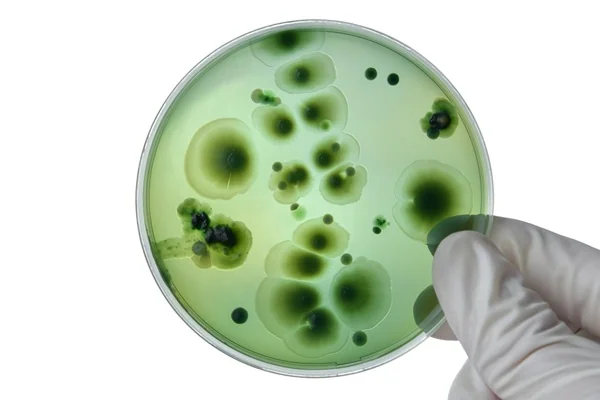
This article explains the role of Thymosin Alpha-1 (TA1 Peptide) in fighting fungal infections by improving immune signals and reducing excess inflammation. It also shows how TA1 and Thymalin peptides can work together to strengthen immune defenses. The piece offers insight into new ways to address stubborn fungal infections and advance antifungal research.
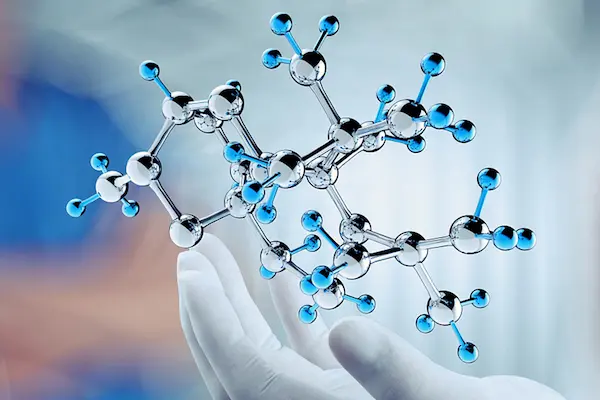
This blog explains immunity peptides, small chains of amino acids that help regulate immune responses. It discusses their roles in fighting microbes, reducing inflammation and balancing immune activity. By highlighting peptides such as Thymosin Alpha-1, LL-37, and VIP, the post shows their value in boosting immune research and understanding the body’s natural defenses.

This blog delves into the antimicrobial and immune-regulating effects of the LL-37 peptide and its role in defending the body against harmful microbes. It explains how LL-37 breaks down pathogens while guiding immune cell communication. The blog also discusses how it works alongside Thymosin Alpha-1, with both showing promise in infection control and immune research aimed at safer, more effective treatments.
ALL CONTENT AND PRODUCT INFORMATION AVAILABLE ON THIS WEBSITE IS FOR EDUCATIONAL PURPOSES ONLY.
DISCLAIMER: These products are intended solely as a research chemical only. This classification allows for their use only for research development and laboratory studies. The information available on our Peptide Works website: https://peptide-works.com/ is provided for educational purposes only. These products are not for human or animal use or consumption in any manner. Handling of these products should be limited to suitably qualified professionals. They are not to be classified as a drug, food, cosmetic, or medicinal product and must not be mislabelled or used as such.